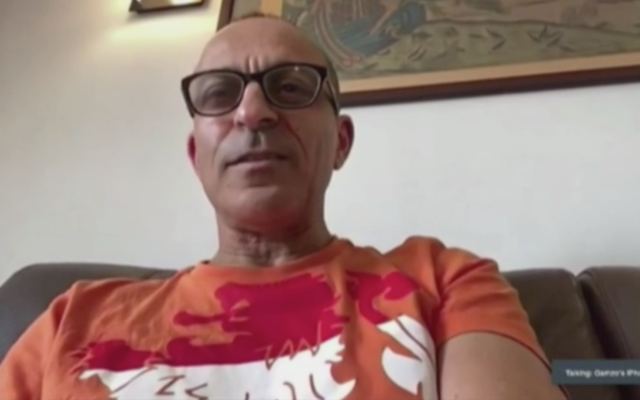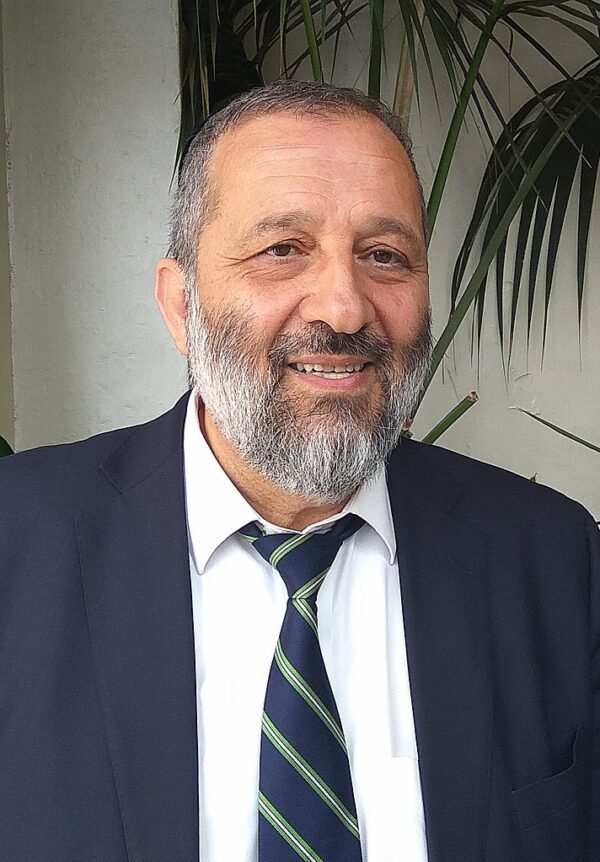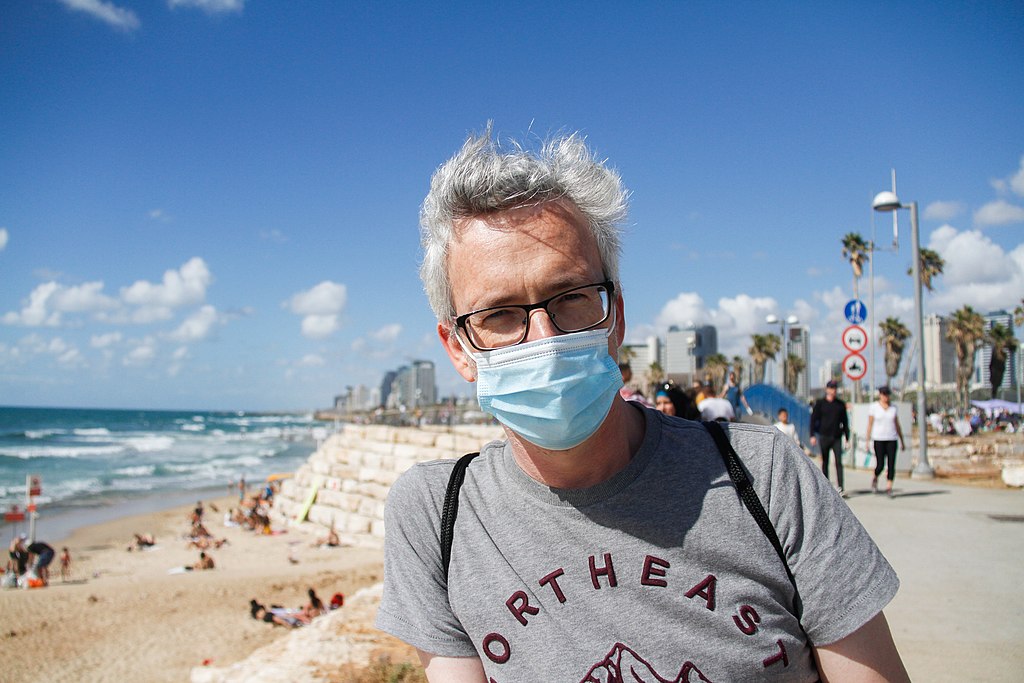Israel submitted itself to a three-week nation-wide lockdown on September 18, in a disheartening and demoralizing sign of its failure to keep the second wave of the coronavirus pandemic in check.
Barely four months after emerging from its first painful encounter with a lockdown, Israel was forced to introduce an array of stifling restrictions to contain the contagion, which has spawned 177,000 cases, killed 1,169 Israelis and battered the economy.
When Prime Minister Benjamin Netanyahu announced the first lockdown in March, 57 Israelis had succumbed to the virus and 9,000 cases had been reported. Compared to advanced countries like the United States, Italy, France, Britain and Spain, Israel was managing the crisis quite successfully.
“We were among the first to understand the scope of the danger,” Netanyahu said, explaining that Israel’s death rate was low and that its economy remained vigorous in comparison to other nations.

Netanyahu’s grasp of the crisis was such that one of his closest allies, Austrian Chancellor Sebastian Kurz, credited him for calling his attention to its seriousness. Kurz said he “thanked God” for his telephone conversation with Netanyahu, who urged him to “wake up and do something.” As a result of their discussion, Austria became a leader in countering the spread of the virus in Europe.
Several months on, Netanyahu is no longer seen in such a flattering light, particularly in Israel, where new infections have been running as high as 5,000 per day, one of the world’s highest daily infection rates per capita.
According to a recent poll, 65 percent of Israelis gave him a failing grade for his handling of the pandemic. Although his performance has elicited sharp criticism, public support for his Likud Party, the largest party in the Knesset, remains fairly firm.
Israel failed to flatten the curve because far too many Israelis did not adhere to the rules. As one Israeli observer, Raphael Bouchnik-Chen, writes, “The current dramatic infection rate in Israel is not preordained but largely an outcome of public contempt and disregard for social-distancing instructions that rendered the decisions of the political and professional echelons totally ineffectual.”
Under the new lockdown arrangements, which will be enforced by 7,000 soldiers and police officers, essential private businesses, such as supermarkets and pharmacies, will continue to operate as long as social distancing and other rules are observed. The public sector, including the international airport, will be open, too, but schools, colleges and universities will be closed. With some exceptions, Israelis will not be permitted to venture more than one kilometre from their homes.
Netanyahu has portrayed the lockdown as a nasty inconvenience, but as an absolute necessity “to save the lives of Israel’s citizens and protect our economy.” On September 17, he said the lockdown may have to be tightened if the results are unsatisfactory.

The minister of health, Yuli Edelstein, has conveyed a similar message: “For three months, I tried to avoid a lockdown. I did everything so that we could live alongside the coronavirus, with rules here and there.Under the circumstances that were created, we had no choice.”
Edelstein warned that the lockdown, which coincides with two major Jewish holidays, will be in vain if Israelis flout the regulations. But if they comply, “there is a light at the end of the tunnel,” he said.
In a candid admission, President Reuven Rivlin said, “I know that we have not done enough as a leadership to be worthy of your attention. You trusted us and we let you down.”
The lockdown created friction in Netanyahu’s cabinet. Several ministers objected, and Yaakov Litzman, the ultra-Orthodox minister of housing, resigned in protest, expressing outrage that it would take place during the high Jewish holidays.
Opposition leaders blamed the government’s lackluster management of the pandemic for the closure and issued a warning that it would have a devastating impact on the economy, which has shed tens of thousands of jobs since March.
According to the Ministry of Finance, the lockdown will cost Israel $1.8 billion.
Naftali Bennett, the head of the far right Yamina Party and the former minister of defence, said the new measures would be a “hammer blow” to small businesses, the self-employed and the unemployed. “This is the result of a managerial and leadership failure the likes of which Israel hasn’t known since its founding,” he claimed.
The tourist industry has been hit tremendously hard by the pandemic. There are real fears that the lockdown will bankrupt hotels, restaurants, cafes and shops and destroy the livelihood of tour guides.

Dr. Ronni Gamzu, who directs Israel’s campaign to combat the virus, believes the lockdown will inflict less economic damage than commonly assumed because much of it will unfold during the Jewish holidays.
Critics claim the lockdown is operationally flawed because it shuts down the entire country rather than only the “red zones,” the towns where the virus is most prevalent.
COVID-19 has had a disproportionate effect in haredi areas and Arab municipalities because ultra-Orthodox Jews and Arabs generally live in congested neighborhoods, have larger than average families and congregate in mass gatherings for celebrations and prayers.
Gamzu originally presented Netanyahu with a lockdown plan for 10 “red” neighborhoods and towns where the infection rate is especially high. Ultra-Orthodox and Arab mayors responded angrily, saying they might not cooperate. Haredi politicians, to whom Netanyahu partially owes his political survival, were also upset.
As a result, Netanyahu capitulated, replacing the lockdown with a nightly curfew from 7 p.m. to 5 a.m. in dozens of “red” neighborhoods and towns. But having come under pressure from the medical community to impose a full lockdown, Netanyahu changed his mind again, saying it was a necessity.
“The health system has raised the red flag,” he said yesterday. “We did everything we could to strike a balance between the health needs and needs of the economy.”
Aryeh Deri, the minister of interior and the leader of the Sephardic ultra-Orthodox Shas Party, has thrown his weight behind the lockdown and attacked members of the haredi community who deny that the pandemic poses a threat.

Haredim have been criticized for gathering in large groups in defiance of guidelines and rules.
“It is spreading all over the country,” Deri said in a reference to the virus. “It is spreading because many rabbis, unfortunately, do not follow the instructions. The weddings and restaurants. I walk around and see observant Jews, with beards, walking without masks. I look and want to shout ‘Who gave you permission? This is harmful, you owe it to me (to wear a mask).’”
Deri’s cri de coeur is fully justified. Far too many haredim and Arabs have ignored or belittled the catastrophic health crisis that currently confronts Israel.
